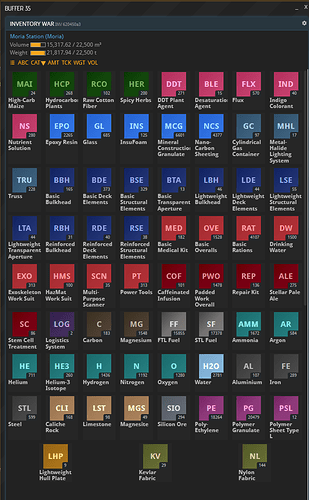I presume that if wages are introduced, which is a sink, there will be also automated buys simulating pops buying consumables with their wages. So the latter will be a faucet. Otherwise, if pops consume no food, water but only cash, the system would be unimmersive.
And if new faucets are introduced, the corporations can always concentrate on farming these faucets.
By the way, the idea that corps don’t need much cash therefore don’t keep much cash is completely wrong. It is true that cash is not of critical importance for vertically integrated corps. Still, large corps have a lot of cash. They are the major cash holders in the game actually. Vertically integrated corps are not isolated from the outer world. It’s just that they have the possibility to pick only the exchanges that are the most profitable to them, and cannot be forced into unfavorable trade as for instance the new players are.
I think many players (and perhaps the devs) don’t understand how large corporations work. Let me give an example. Before the release on Steam, our corp used to buy a lot of carbon on the CX. Then it was below 270 AIC/unit and it was not revenue per area efficient to produce it oneself. After the release this price skyrocketed and now it is above 450 AIC/u (in Antares area). How did the corp react to this change in price? 1)First of all corp members reacted at an individual level by building more incinerators. But being part of the corp gave them access to cheap basic prefabs, less then half of the CX price. At the same time the Bfab prices on the CX were almost at the MM sell. So the corp provided the possibility for cheap investment. 2)Then more recently we undertook a coordinated effort to dedicate a new planet (Nascent) to carbon production, with several corp members building bases there, constructing some infrastructure and getting the relevant COGC bonus. Now we as a corp are going to sell carbon on the CX and profit from the historically high prices.
So as a corp we are not isolated from the rest of the universe. We just outsource, so to say, the least profitable steps to the CX, and integrate in our operations the most profitable steps, even if these steps are something as basic as producing carbon, or for instance extracting hydrogen (which also went very high on the CX).
We already trade for money both internally and externally. However, we trade internally and externally with two completely different mind sets. For outer trades, we go for cash. We maximize our profit. Internally, we seek balance and stable prices. We moderate our margins, keep rare and difficult to acquire products in reserve for corpmates rather then selling them on the CX, and try to return the favors.
